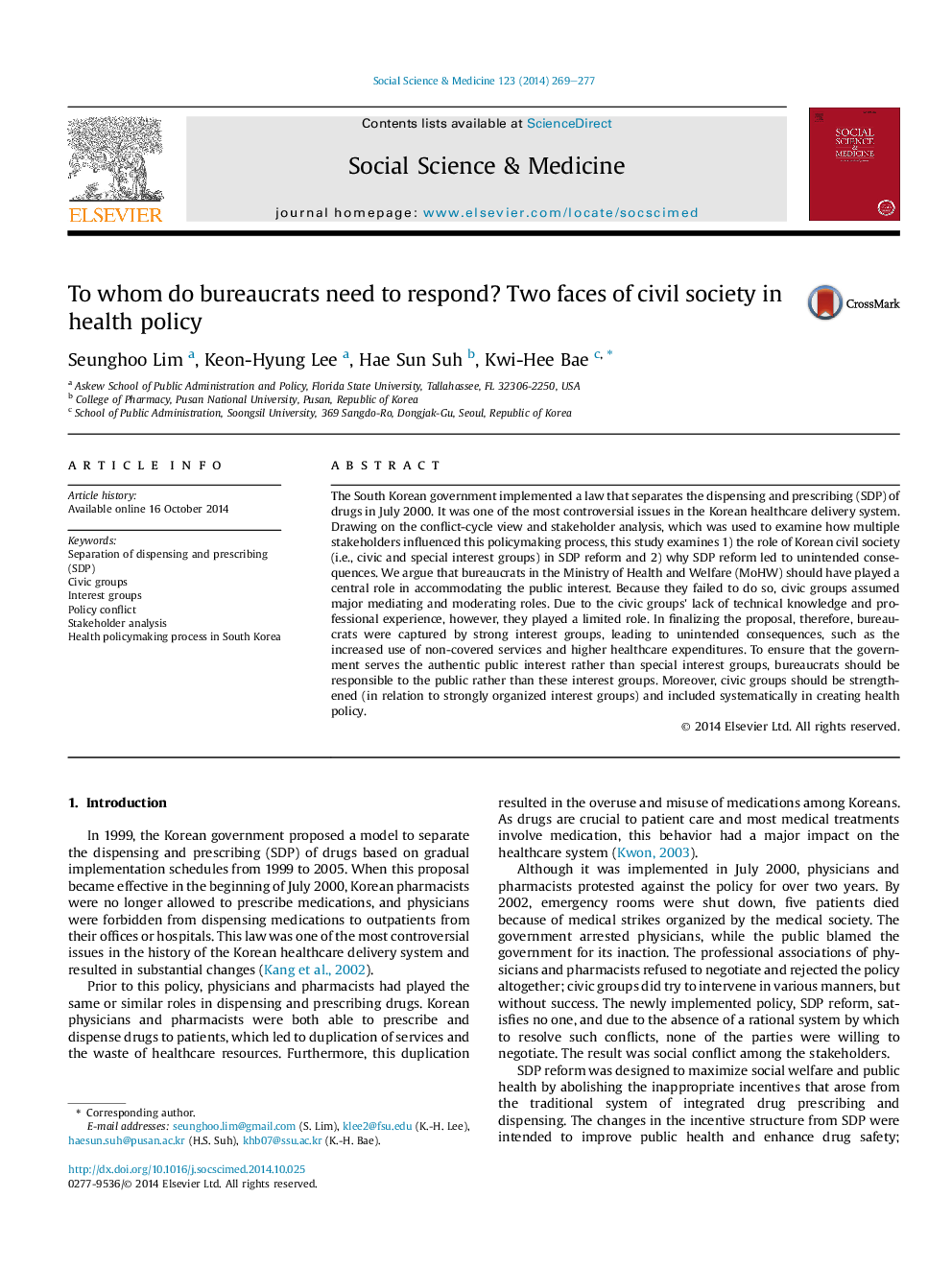| Article ID | Journal | Published Year | Pages | File Type |
|---|---|---|---|---|
| 7333891 | Social Science & Medicine | 2014 | 9 Pages |
Abstract
The South Korean government implemented a law that separates the dispensing and prescribing (SDP) of drugs in July 2000. It was one of the most controversial issues in the Korean healthcare delivery system. Drawing on the conflict-cycle view and stakeholder analysis, which was used to examine how multiple stakeholders influenced this policymaking process, this study examines 1) the role of Korean civil society (i.e., civic and special interest groups) in SDP reform and 2) why SDP reform led to unintended consequences. We argue that bureaucrats in the Ministry of Health and Welfare (MoHW) should have played a central role in accommodating the public interest. Because they failed to do so, civic groups assumed major mediating and moderating roles. Due to the civic groups' lack of technical knowledge and professional experience, however, they played a limited role. In finalizing the proposal, therefore, bureaucrats were captured by strong interest groups, leading to unintended consequences, such as the increased use of non-covered services and higher healthcare expenditures. To ensure that the government serves the authentic public interest rather than special interest groups, bureaucrats should be responsible to the public rather than these interest groups. Moreover, civic groups should be strengthened (in relation to strongly organized interest groups) and included systematically in creating health policy.
Related Topics
Health Sciences
Medicine and Dentistry
Public Health and Health Policy
Authors
Seunghoo Lim, Keon-Hyung Lee, Hae Sun Suh, Kwi-Hee Bae,
